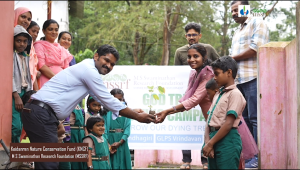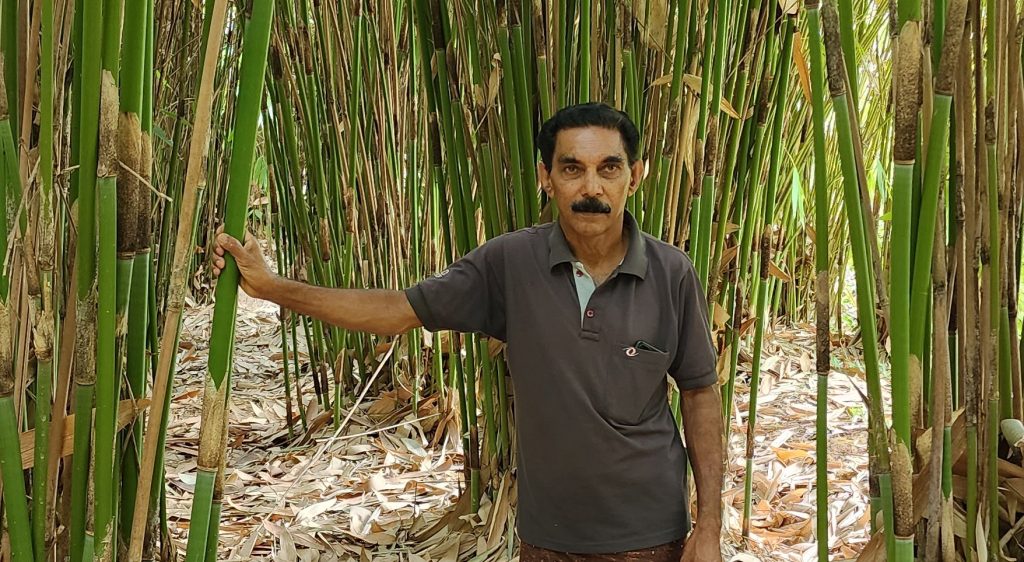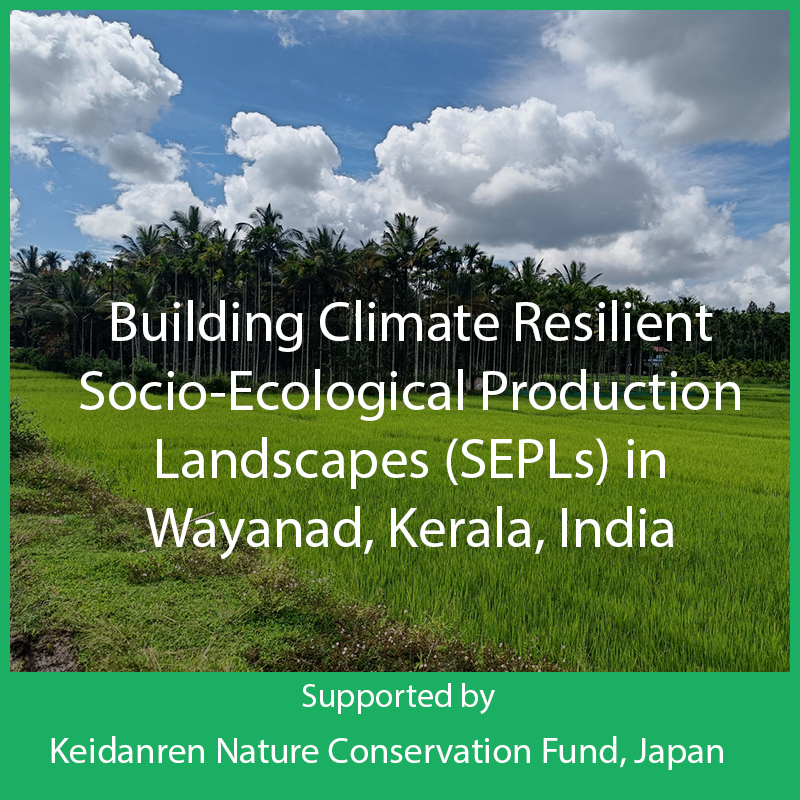
Since 2018, Kerala state has been experiencing climate shocks of severe magnitude impacting millions of people’s lives and livelihoods. Kerala’s 17% of the land is vulnerable to landslides, and for the districts in the high-land areas, this reckons to an average of 50%. Kerala state, sandwiched between the Arabian Sea and the Western Ghats, is a global Climate Hotspot with dense human population.
Carbon Neutral development with Net-zero targets by 2040, and achieving the17 SDGs by 2030 are the two high-priority goals of India. However, the policies and plans that help to tread the pathway for sustainable development locally are often framed without an informed role of Local Self Governments or adequate participation of local community families who are often most vulnerable to climate disasters.
A paradigm shift in climate vulnerability management is the need of the hour from a “much-said, but poorly-acted” state to a “well-said and well-acted” one. This project, which is supported by Keidanren Nature Conservation Fund, Japan ) and implemented with the guidance of the International Partnership of Satoyama Initiative is towards this direction.
Project Plan of Action
The project is in a three-year time frame, with integrated actions in three Work Packages (WPs).
- WP1 (Year 1) includes the collection and collation of data along with mapping ofthe climate vulnerabilities, coupled with the documentation of best practices in Ecosystem-based Adaptation (EbA) in the region.
- WP2 (Year 2) focus will be on the development of a Mobile Application (EbAApp) synthesizing location-specific data on Agriculture, forestry, and related land uses, transportation, energy, and waste management.
- WP3 (Year 3) will focus on strengthening multi-stakeholder platforms and building partnerships for carbon-neutral actions. Local communities, Local Self Governments, policymakers, and practitioners will be brought in for promoting EbA methods and for nature-based solutions.
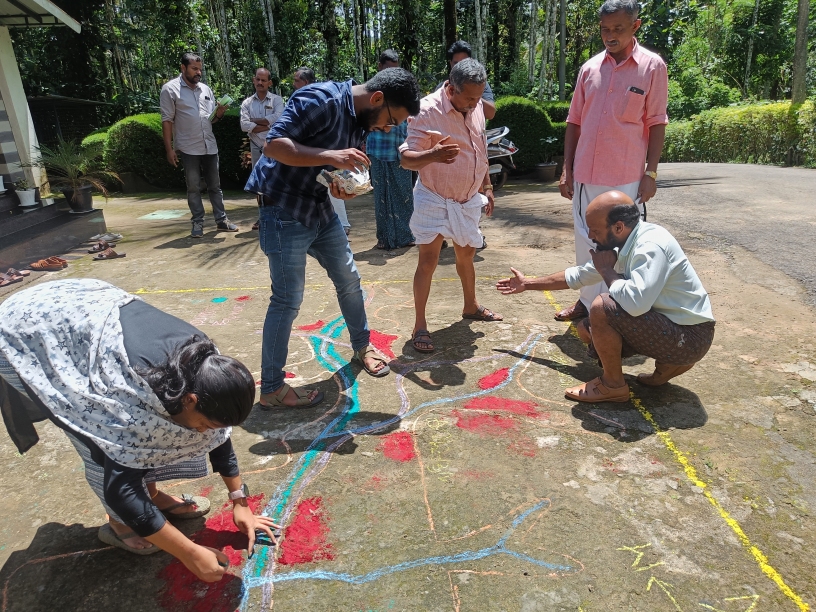
Ongoing Activities
In the second year of the work (2024), the focus will be targeting farm-to-fork carbon-neutral participatory actions in both government level and farmers’ level to mitigate the climate change and strengthening the ‘Climate Warriors’ in climate risks preparedness in the village. Creating a replicable model in climate change adaptation using climate communication methods will be key attention area. Major attention will be giving to the following areas;
- The year also will be to strengthen actions in communication, capacity development, education and awareness, targeting students government machineries, farmers and public about climate disaster risk reduction and biodiversity conservation. The key focus will be on soil fertility improvement, biodiversity enhancement, promotion of water storage and utility improvement measures, adoption of energy efficient measures.
- Participatory efforts will also be made to restore the degraded fallow places in of the village by combining the government and private partners.
- Promotion of the Rare Endemic and Threatened (RET) plant species and indigenous tree species through various government programmes through the GOD tree (Grow Our Dying Tree) campaign.
- Traditional landraces of rice varieties and its value-addition promotion will also be taken up in the second year.
- Development of a Mobile application (EbA-APP) by synthesizing location-specific data in Agriculture and allied sectors, forestry and other land uses, transportation, energy, and waste management
- The Local Self Government Machineries will be trained on the impacts of changes of climate so as to earmark more funds towards the climate induced maladies in the village
Expected Outputs & Outcomes
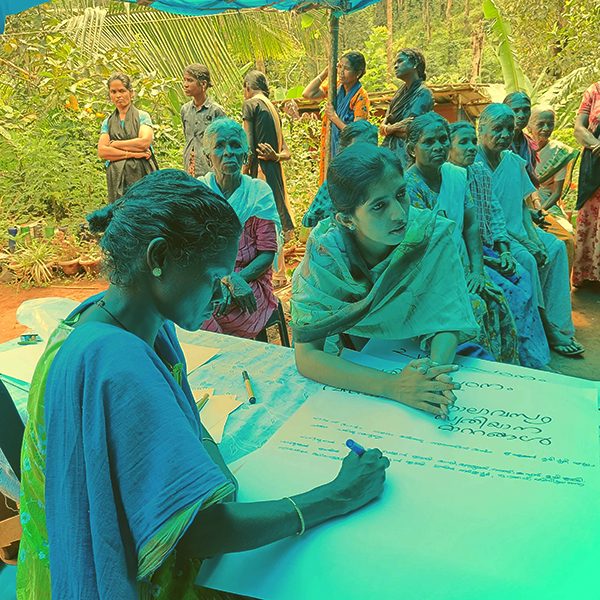
Work Package 1
Case studies on the best practices of Ecosystem-based Adaptation (EbA)
Promotion of methods and tools that help soil productivity improvement and water-use efficiency through soil organic carbon storage and with a consortium of suitable microbial inputs as well as micro-weather information and drip irrigation technologies
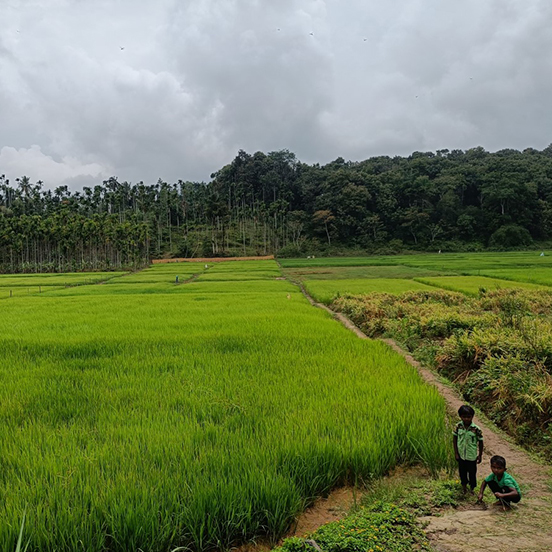
Work Package 2
A suitable and scalable Mobile App that provides the necessary information, data, and methods of intervention for carbon-neutral development, viz., enhancement of biodiversity, improvement of soil fertility, and increasing efficiency of water and energy uses.
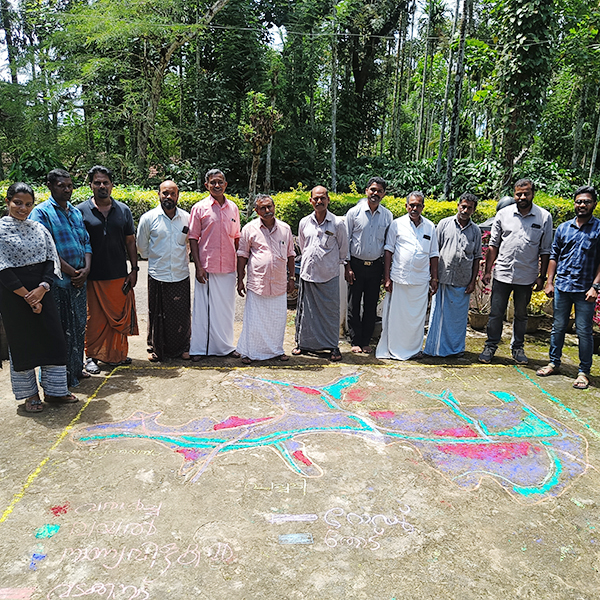
Work Package 3
A well-trained group of youth as trainers in Carbon Neutral Development interventions in the areas of agriculture and allied sectors, energy, and transportation
A nature-based intervention module that will focus on the methods and tools to improve degraded or abandoned production landscapes, in particular the mountain ecosystems, edges of coffee, tea, and rubber plantations, etc.
Project Updates
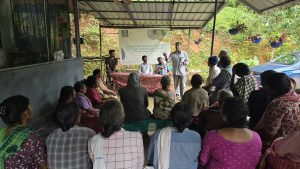
Training On Climate Change, Agriculture and Soil Fertility Conducted
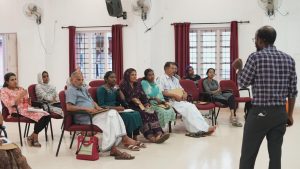
Changed climatic conditions are not reversible
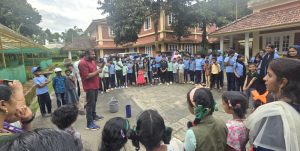
One-Day Workshop on Climate Change for School Children
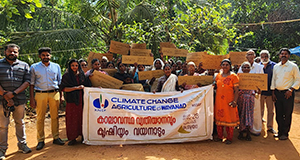
World Meteorological Day Observed
Project Partners
PozhuthanaGramaPanchayath and Vythiri Block Panchayath are other major partners that plays critical role in the project.
The Departments of GIS and Information Technology of Kannur University, Kerala
The Tropical Institute of Ecological Sciences (TIES), Ecological Research Campus, K.K Road,Velloor P.O 686 501, Kottayam, Kerala, India

